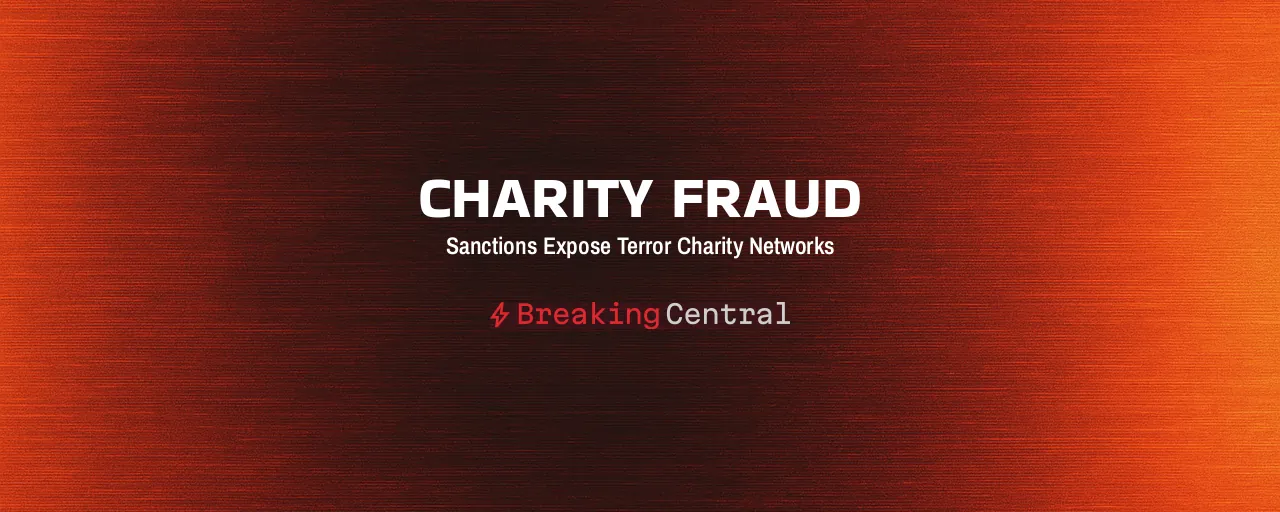Charity or Cover for Terror?
A donation meant to feed hungry children in Gaza ended up in the hands of terrorists plotting attacks. This betrayal came to light on June 10, 2025, when the U.S. Treasury sanctioned five individuals and five fake charities for funneling money to Hamas's military wing and the Popular Front for the Liberation of Palestine (PFLP). These groups, operating from Gaza to Turkey, masquerade as humanitarians while fueling violence. The truth is undeniable, and a fierce response is necessary.
The Treasury's Office of Foreign Assets Control (OFAC) has pulled back the curtain on this deception. Organizations like Gaza's Al Weam Charitable Society and Turkey's Filistin Vakfi are deeply entwined with terrorist networks. Al Weam's chairman, Muhammad Sami Muhammad Abu Marei, is a Hamas military operative who uses the charity to raise funds for violence. This calculated scam preys on global goodwill, posing as charity.
Hamas and the PFLP have long exploited the trust of donors, both in the U.S. and abroad. With Hamas still holding hostages, including two Americans, from its October 7, 2023, attack, and the PFLP designated as a terrorist group since the 1990s, the urgency is clear. How do these networks thrive? They bank on our hesitation to act decisively, hiding their bloodshed behind a facade of compassion.
Advocates for humanitarian aid claim sanctions do more harm than good, arguing they disrupt aid to civilians in places like Gaza. They warn of overreach and unintended consequences. Yet this view overlooks the core issue: terrorists are the ones stealing from the vulnerable, diverting aid meant for families to fund rockets and bombs. Sanctions are not the obstacle; they are a starting point for justice.
The stakes are immense. Every dollar that reaches Hamas or the PFLP prolongs suffering, threatens hostages, and destabilizes the region. The U.S., alongside allies like the UK and Australia, is taking action. But the question remains; are we doing enough to stop this betrayal?
Decades of Deceit
For years, Hamas and the PFLP have perfected the art of exploiting charities. The Treasury's 2024 National Terrorist Financing Risk Assessment confirms that sham charities remain a key pipeline for terrorist funds. Hamas alone is estimated to pull in up to $10 million monthly through these fronts. That's money meant for aid, redirected to violence.
The Netherlands-based Israa Charitable Foundation, tied to the Hamas-run Union of Good, serves as an example. Its operative, Amin Ghazi Abu Rashed, has raised millions under the guise of humanitarian work. In Algeria, El Baraka Association's president, Ahmed Brahimi, ensured donor funds reached Hamas instead of those in need. These examples reveal a sprawling network that thrives on weak oversight.
Past failures drive the point home. A 2018 USAID audit uncovered $700 million in unvetted aid in Iraq and Syria, some diverted to groups like Hay'at Tahrir al-Sham. In Gaza, Hamas has taxed UN assistance and skewed beneficiary lists since 2007. The UN's World Food Programme lost up to 30 percent of its Somalia rations to al-Shabaab. These breakdowns show the cost of lax enforcement and half-measures.
Liberal advocates for humanitarian aid argue they hinder legitimate aid by scaring banks away from charities. Yet the real threat is letting terrorists exploit these gaps. The solution lies in targeted sanctions, rigorous vetting, and global cooperation to protect genuine humanitarian efforts while starving terrorist networks.
Sanctions That Bite
The Treasury's June 2025 sanctions showcase precision and resolve. By targeting entities like Italy's La Cupola d'Oro, run by Hamas facilitator Mohammad Hannoun, OFAC freezes assets and bans U.S. transactions, choking off funds for terror. Since 2001, E.O. 13224 has frozen over $6 million in al-Qaida assets, and Hamas and the PFLP are now under similar pressure, with formal funding channels disrupted.
Terrorists adapt, turning to cash couriers and cryptocurrencies to evade detection. This reality demands an even tougher response. The U.S. needs to expand designations, target facilitators in nations like Qatar and Turkey, and maintain relentless pressure. Joint efforts with the UK and Australia in 2024 show the power of unity. Why pull back when the momentum is ours?
Liberal advocates for humanitarian aid advocate for softer measures, citing risks to civilians or diplomatic ties. They push for broader exemptions to ease aid delivery. Yet this approach hands terrorists the advantage, letting them exploit every loophole. The priority is clear: cutting off their funds to end their violence. Anything less betrays the victims of terror.
Sealing the Cracks
The Treasury's sanctions mark progress, but the fight is far from over. To crush these networks, the U.S. needs to pursue more designations, stricter enforcement, and zero tolerance for terror financiers. This effort shields charities from those who twist compassion into a weapon, rather than harming them.
Genuine aid needs to reach those in need, but it requires ironclad protections. Stronger vetting, independent audits, and global partnerships are essential to ensure aid isn't hijacked. The UN and NGOs also need to take responsibility, tightening their systems to prevent exploitation by groups like Hamas.
This battle secures peace, extending beyond mere financial concerns. By dismantling sham charities, we protect lives and build a future free from terror's grip. The U.S. has the strength and clarity to lead. Let's act with the urgency this moment demands.
